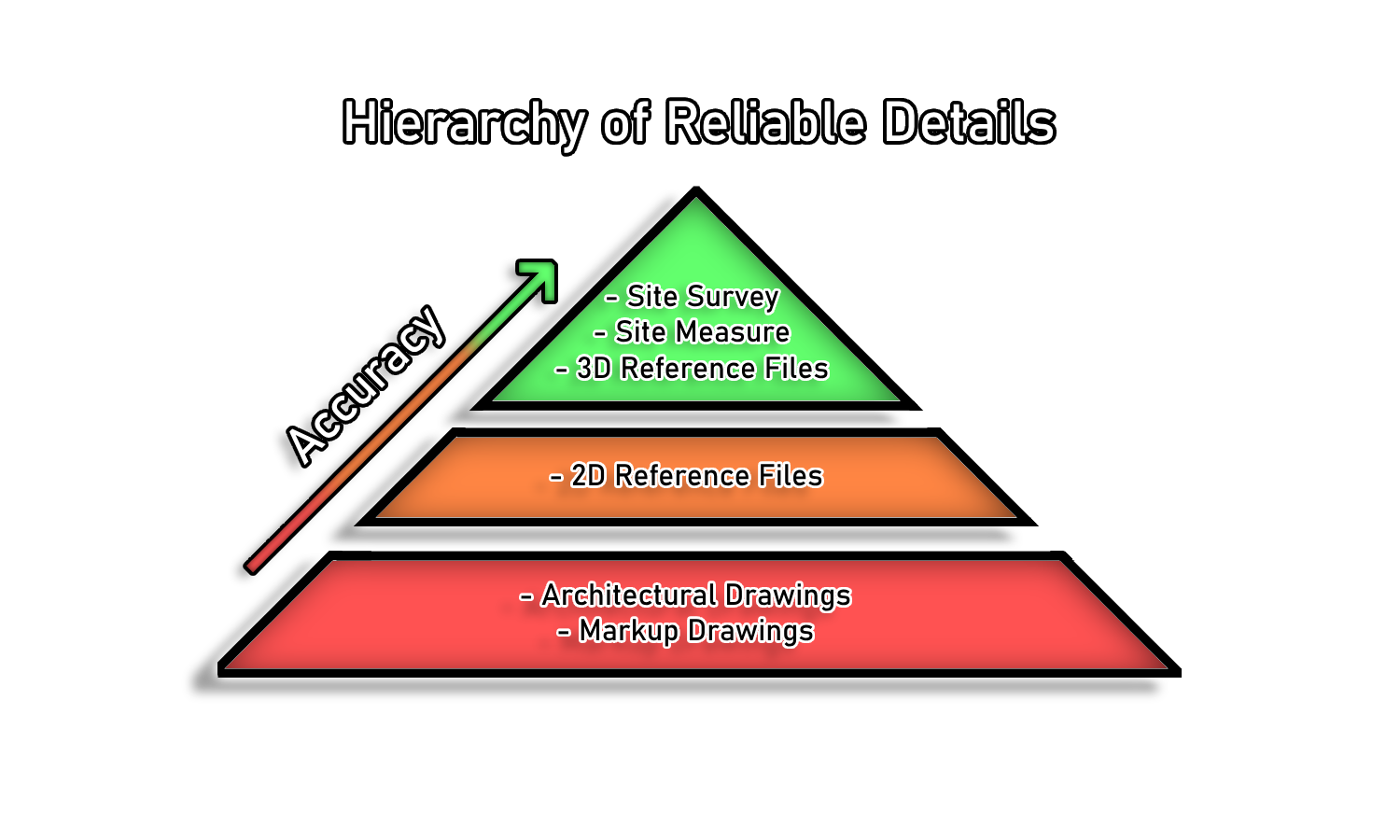Site Measurements: Difference between revisions
No edit summary |
No edit summary |
||
| Line 8: | Line 8: | ||
[[File:Hierarchy_of_Reliable_Details.png]] | [[File:Hierarchy_of_Reliable_Details.png]] | ||
<b>Most accurate details</b> | |||
*Site Survey | *Site Survey | ||
Site surveys are usually taken by a qualified site surveyor. These will usually contain RL's and sometimes Northings and Easting measurements. | |||
*Site Measure | *Site Measure | ||
*3D Reference Files | *3D Reference Files | ||
Revision as of 23:00, 4 February 2024
Site measurements are the process of taking accurate measurements and dimensions of a construction site, typically performed by a trained professional. This information is used to ensure that building materials and structures are properly aligned and fitted to meet design and safety requirements.
Some common tools for site measurements are tape measures, measuring wheels, screwdrivers, and laser devices. There are different methods for measuring different objects, such as straight or square objects, angled objects, and curved objects. Some methods are rise and run, triangulation, and area calculation.
Site measurements are important for planning, designing, and constructing any project, whether it is a house, a garden, a road, or a bridge. They help to avoid errors, save time and money, and ensure quality and accuracy.
At Moddex we have a hierarchy of reliable details that we use to distinguish how reliable the type of measurements are.
Most accurate details
- Site Survey
Site surveys are usually taken by a qualified site surveyor. These will usually contain RL's and sometimes Northings and Easting measurements.
- Site Measure
- 3D Reference Files
- 2D Reference Files
- Architectual Drawings
- Markup Drawings

